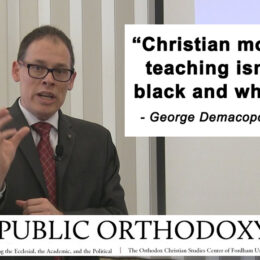In an address to assembled social and pastoral care workers in Fatima, Portugal yesterday, Pope Benedict identified abortion and the pressure for gay “marriage” as among the most “insidious and dangerous challenges that today confront the common good,” and expressed his “deep appreciation” for those who fight for the rights of the unborn.
Benedict hailed “all those social and pastoral initiatives” that combat the “socio-economic and cultural mechanisms which lead to abortion, and are openly concerned to defend life and to promote the reconciliation and healing of those harmed by the tragedy of abortion.”
These “initiatives aimed at protecting the essential and primary values of life, beginning at conception, and of the family based on the indissoluble marriage between a man and a woman, help to respond to some of today’s most insidious and dangerous threats to the common good.
“Such initiatives represent, alongside numerous other forms of commitment, essential elements in the building of the civilization of love.”
In the address following a huge open-air Mass at the famous shrine of the Fatima apparitions, the pope highlighted current social trends that present “a scenario of socio-economic, cultural and spiritual crisis, which highlights the need for a discernment” guided by the Church’s social teaching.”
He said that Catholic social agencies, such as the British and some American Catholic adoption agencies, must fight these trends to maintain a true Christian identity in the face of ideological pressure from the “prevailing culture.” This culture “constantly holds up a lifestyle based on the law of the stronger, on easy and attractive gain,” he said.
Such trends risk “emptying” social works of “the motivation of faith and Christian hope which had originally inspired them.”
The “guiding principles” of Catholic social agencies, he said, “need to be clear, so that they can be clearly identifiable by the inspiration of their aims, in the choice of their human resources, in their methods of operation, in the quality of their services, and in the serious and effective management of their means.”
He called it “a fundamental step” to ensure that such organisations are “ranted autonomy and independence from politics and ideologies.”
HT: LifeSiteNews




